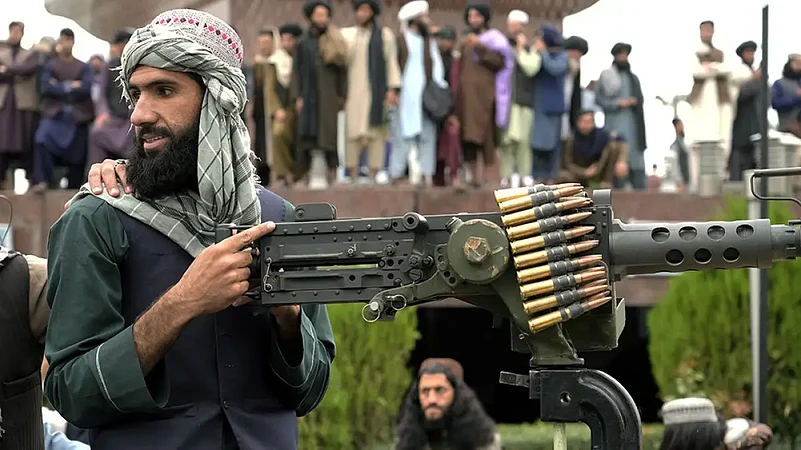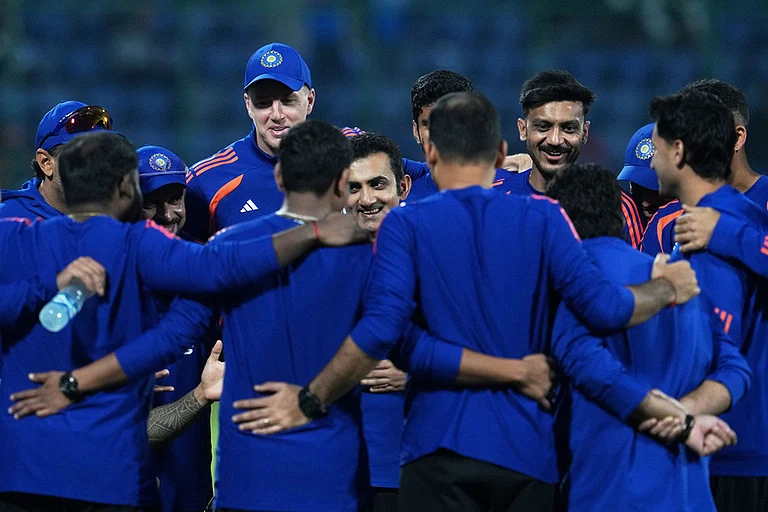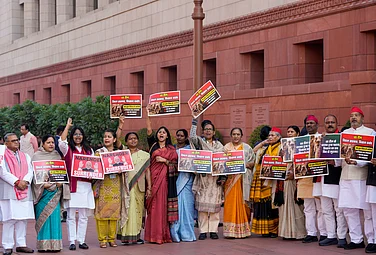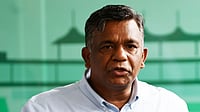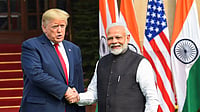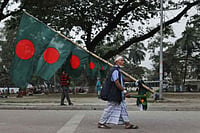The banned Tehreek-e-Taliban Pakistan (TTP) on Wednesday threatened to target the top leaders of the two major political parties in the ruling coalition if they continued to support tough measures against the militant group.
The TTP, which is believed to be close to al-Qaeda, has explicitly warned Prime Minister Shehbaz Sharif's Pakistan Muslim League-Nawaz (PML-N) and Foreign Minister Bilawal Bhutto-Zardari led Pakistan Peoples Party (PPP) - the two major parties of the ruling coalition.
"If these two parties remain firm on their position and continue to be slaves of the army, then action will be taken against their leading people," a statement issued by the militant group said.
The group warned that "people should avoid getting close to such leading people."
It claimed that the TTP was only waging what it called "jihad" in Pakistan and "our target is the security agencies occupying the country".
It explicitly warned Foreign Minister Bilawal, whose mother, former prime minister Benazir Bhutto, was killed allegedly by the TTP militants in a terrorist attack in 2007.
"Although Bilawal is still young, this poor man has not yet witnessed the state of war," the statement said, adding that the PPP leader had declared an open war on TTP.
The group also said that it had not taken action against any political party for a long time but "unfortunately…Bilawal Bhutto Zardari gave the US the status of mother to quench the thirst of his mother's love".
The terrorist outfit also said that Prime Minister Sharif had committed the support of his entire party in the war against TTP to please the US.
The TTP spared the religious political parties, saying there is no scope for action against them in TTP's policy. However, it said that "we also request you (religious parties) to refrain from activities against us."
The warning comes just days after the civil-military leadership of the country met under the banner of the National Security Committee and vowed to show "zero tolerance" for terrorism in the country.
Prime Minister Sharif chaired the NSC meeting while Bilawal, who had advocated a new policy against the rebels, also participated.
Addressing a press conference on Wednesday, Interior Minister Rana Sanaullah said that steps were being taken to deal with the Taliban threat in the light of the decision taken at the meeting of the National Security Committee.
The NSC, in two separate rounds of meetings since last Friday, decided to show "zero-tolerance" towards militant groups.
"NSC reiterated its resolve to have zero tolerance for terrorism in Pakistan and reaffirmed its determination to take on any and all entities that resort to violence. This will be dealt with full force of the state. Pakistan's security is uncompromisable and the full writ of the state will be maintained on every inch of Pakistan's territory," said a statement issued by the PM Office after the meeting.
The NSC is the highest body to finalize decisions about key security and strategic matters relating to national security.
When asked about the TTP threat to target leaders of the two leading political parties, the interior minister said that there was a “general threat of terrorism” and the government was already taking the necessary precautions.
Sanaullah said that the government was taking steps to counter terrorism but such measures couldn't be publicised. "You will see the decisions that were made in regards to this being implemented in the coming days," he said.
He said that pre-emptive measures were being taken to counter the threat.
The minister said that the government had adopted a policy of “zero tolerance” against terrorism with no differentiation between “good or bad terrorists”. He said whoever was involved in terrorism was a terrorist.
He also stated that efforts were underway to bring the TTP to the negotiation table but the rebels would have to submit before the law.
"They will have to first set aside arms and surrender before the law and the constitution,” he said, adding that the government was fully committed to purge Pakistan of the menace of terrorism.
On Tuesday, Sanaullah had said that there will be no talks with the TTP or any other terrorist organisation.
The foreign minister earlier also opposed talks with the militants, saying the government would not follow the policy of appeasement.
In November, the TTP called off an indefinite ceasefire agreed with the government in June and ordered its militants to carry out attacks on the security forces.
The TTP, also known as the Pakistan Taliban, was set up as an umbrella group of several militant outfits in 2007. Its main aim is to impose its strict brand of Islam across Pakistan.
Pakistan had hoped that the Afghan Taliban after coming to power would stop the use of their soil against Pakistan by expelling the TTP operatives but they have apparently refused to do so at the cost of straining ties with Islamabad.
The TTP has been blamed for several deadly attacks across Pakistan, including an attack on army headquarters in 2009, assaults on military bases and the 2008 bombing of the Marriott Hotel in Islamabad.
In 2012, Nobel laureate Malala Yousafzai was attacked by TTP. She suffered bullet injuries and was admitted to the Military Hospital (CMH) Peshawar and then taken to London for further treatment. The TTP claimed responsibility for the attack, saying that Yousafzai was a "Western-minded girl".
In 2014, the Pakistani Taliban stormed the Army Public School (APS) in the northwestern city of Peshawar, killing at least 150 people, including 131 students. The attack sent shockwaves across the world, and was widely condemned.
-With PTI Input






